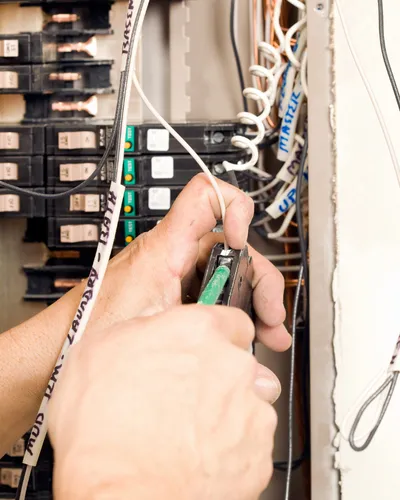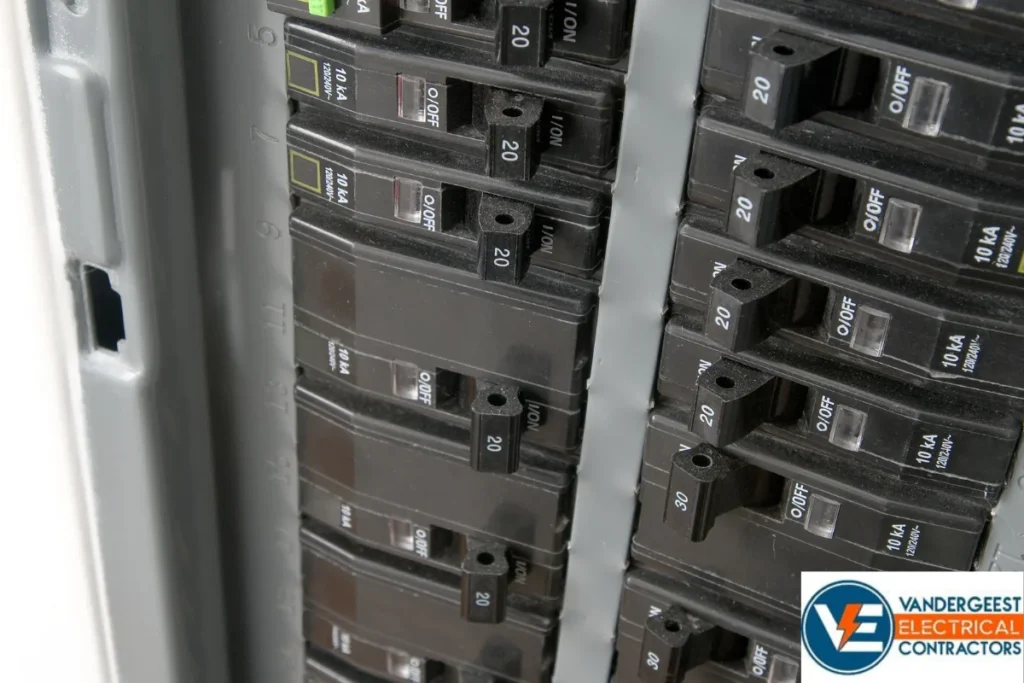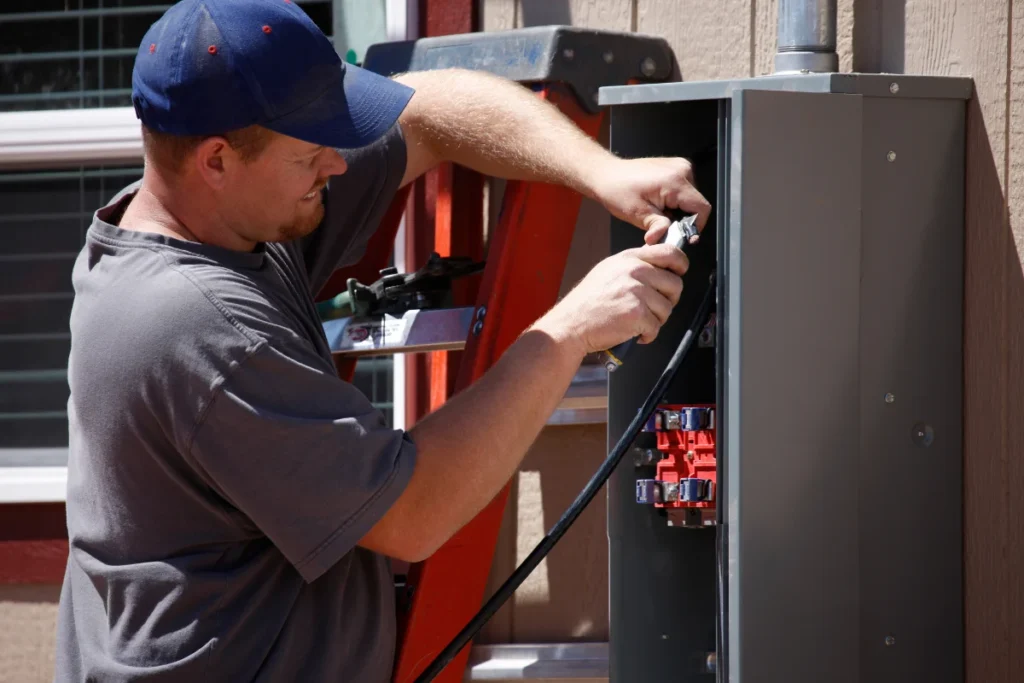Why Your Circuit Breaker Keeps Tripping: Common Triggers and How to Fix Them
Are you tired of dealing with a circuit breaker that keeps tripping? It’s a common nuisance that can disrupt your daily activities and leave you in the dark. If you’re wondering, “Why does my circuit breaker keep tripping?” you’ve come to the right place.
Understanding the causes behind circuit breaker trips is essential for maintaining a safe and efficient electrical system in your home or workplace. In this article, we’ll explore the common reasons for circuit breaker tripping and provide practical solutions to prevent or resolve this recurring issue.
Whether you’re a homeowner concerned about electrical safety or a business owner looking to avoid downtime, this comprehensive guide will equip you with the knowledge to address circuit breaker trips effectively. Let’s dive into the world of circuit breakers and discover how to keep them from tripping, ensuring uninterrupted power supply for your needs.
To comprehend why your circuit breaker keeps tripping, it’s crucial to have a clear understanding of how this essential electrical device operates. Let’s explore the basics of a circuit breaker and its role in safeguarding your electrical system.
- What is a Circuit Breaker? A circuit breaker is a crucial component in your electrical panel that protects your home or establishment from electrical overloads, short circuits, and potential fire hazards. It acts as a switch that automatically interrupts the flow of electricity when it detects an abnormal surge or fault in the circuit.
- How Does a Circuit Breaker Work? When the current flowing through a circuit exceeds the breaker’s rated capacity or encounters a fault, the trip unit triggers the circuit breaker to trip. This action instantly interrupts the flow of electricity, protecting the circuit and preventing potential damage or hazards.
By understanding the key components and functioning of a circuit breaker, you’ll be better equipped to diagnose and address the reasons behind its frequent tripping. In the next section, we’ll explore the common causes of circuit breaker trips and how to troubleshoot them effectively.
Common Causes of Circuit Breaker Tripping
Understanding the common causes of circuit breaker trips is essential for identifying and resolving the underlying issues that lead to this frustrating occurrence. In this section, we will explore the primary culprits behind circuit breaker tripping and provide insights on troubleshooting them effectively.
Overloaded Circuit: One of the most prevalent causes of circuit breaker trips is an overloaded circuit. When you connect too many electrical devices or appliances to a single circuit, it exceeds its capacity, causing the breaker to trip and interrupt the flow of electricity. By recognizing the signs of an overloaded circuit and implementing load management techniques, you can prevent these frequent trips.
Short Circuit: A short circuit occurs when a hot wire comes into direct contact with a neutral or ground wire, creating a low-resistance path for electricity. This abnormal flow of current triggers the circuit breaker to trip and protect against potential fires or electrical damage. Understanding the signs of a short circuit and addressing them promptly is vital for maintaining a safe electrical system.
Ground Fault: A ground fault occurs when an exposed or faulty wire comes into contact with a ground conductor, such as a metal electrical box or the earth itself. This can lead to an imbalance in the electrical system, triggering the circuit breaker to trip. Ground fault circuit interrupters (GFCIs) play a critical role in detecting and preventing electrical shocks, making them a crucial component in areas prone to moisture, such as kitchens and bathrooms.
Faulty Appliances or Equipment: Malfunctioning appliances or equipment can also be a common cause of circuit breaker trips. When a defective device introduces irregular electrical currents or excessive power demands into the circuit, the breaker senses the abnormality and trips to protect the system. Regular inspection and maintenance of appliances can help identify and address these issues.
Aging or Damaged Wiring: Over time, electrical wiring can deteriorate due to age, wear and tear, or pests. Damaged or frayed wires can lead to short circuits or ground faults, causing the circuit breaker to trip. Identifying and addressing wiring issues through proper inspection and professional assistance is crucial for maintaining a safe electrical system.
By understanding these common causes of circuit breaker trips, you’ll be better equipped to diagnose and resolve the underlying issues. In the following section, we will delve into troubleshooting techniques and practical solutions to prevent circuit breaker trips, ensuring a reliable and safe electrical system.
Troubleshooting Circuit Breaker Trips and Seeking Professional Assistance
While some circuit breaker tripping issues can be resolved through troubleshooting, it’s important to know when it’s necessary to seek professional assistance. Proper diagnosis and resolution of complex electrical problems require the expertise of qualified electricians. Here are some steps to troubleshoot circuit breaker trips, and when it’s advisable to consult a professional:
Resetting the Circuit Breaker: When a circuit breaker trips, resetting it is often the first step. However, if the breaker continues to trip frequently, it indicates an underlying problem that needs further investigation.
Load Management: Preventing circuit overloads is crucial for reducing the occurrence of trips. Properly managing electrical loads by redistributing devices across different circuits and avoiding simultaneous high-power appliance usage can help alleviate strain on the system.
Inspecting Appliances and Equipment: Regular inspection and maintenance of appliances and equipment can help identify any issues that might be causing circuit breaker trips. Look for signs of frayed wires, loose connections, or unusual sounds. If you suspect a specific device is causing the trips, consider having it professionally examined or repaired.
Consulting a Professional Electrician: For persistent circuit breaker trips or if you’re unsure about the cause, it’s recommended to seek the expertise of a professional electrician. They can accurately diagnose the root cause of the problem and provide appropriate solutions. Professional electricians have the knowledge and tools to handle complex electrical issues while ensuring compliance with safety standards. Contact us for a free quote.
Professional electricians offer the following benefits:
- Thorough inspections and accurate diagnostics to identify the underlying cause of circuit breaker trips.
- Expertise in handling complex electrical problems and implementing effective solutions.
- Compliance with safety regulations to ensure a secure electrical system.
- Reliable service to minimize disruptions and restore your electrical system promptly.
- Remember, the safety of your electrical system and your property is paramount. If you’re experiencing persistent circuit breaker trips or are uncertain about the cause, it’s wise to consult a professional electrician who can provide the expertise needed to resolve the issue effectively.
Conclusion: Taking Control of Circuit Breaker Trips
Understanding the causes of circuit breaker trips and implementing appropriate solutions is crucial for maintaining a safe and functional electrical system in your home or business. By following the troubleshooting techniques outlined in this article, you can take control of circuit breaker trips and minimize disruptions to your daily activities. Remember, safety should always be the top priority when dealing with electrical issues.
If you’ve exhausted your troubleshooting efforts or are dealing with persistent circuit breaker trips, it’s recommended to seek professional assistance from a qualified electrician. At Vandergeest Electrical Contractors, we have a team of experienced electricians ready to help diagnose and resolve your electrical problems. Our experts have the knowledge and skills to address complex issues, ensuring the safety and reliability of your electrical system.
Don’t let circuit breaker trips compromise the functionality and safety of your electrical system. Contact Vandergeest Electrical Contractors today to schedule an appointment with our skilled electricians. Let us handle your electrical concerns with professionalism and expertise, providing you with peace of mind and a reliable electrical system.
our Values Drive Everything We Do
Why Vandergeest?
- Knob and Tube Experts
- 100% Satisfaction Guaranteed
- Get A Fast & Fair Quote
- Our Goal Is For You To Never Have To Look For Another Electrical Contractor



